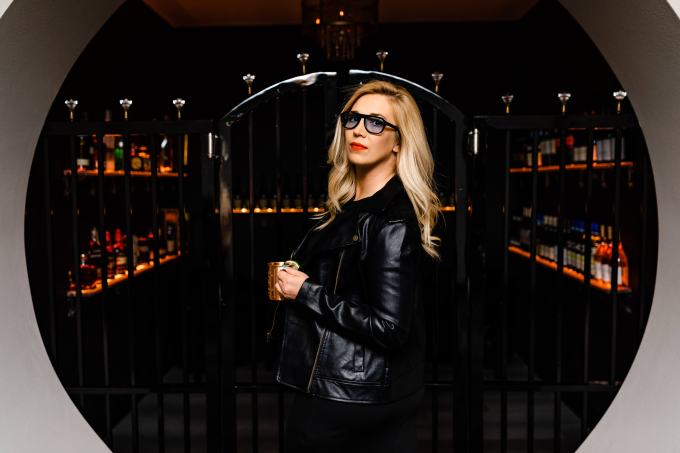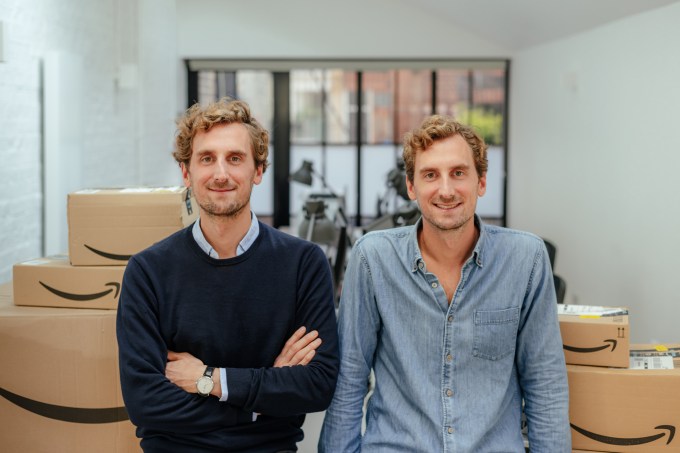News: Daily Crunch: Databricks reaches $38B billion valuation with $1.6B Series H
Hello friends and welcome to Daily Crunch, bringing you the most important startup, tech and venture capital news in a single package.
To get a roundup of TechCrunch’s biggest and most important stories delivered to your inbox every day at 3 p.m. PDT, subscribe here.
Hello and welcome to Daily Crunch for August 31, 2021. Today the TechCrunch machine was busy covering the first day of Y Combinator’s Demo Day event, so expect to see all sorts of coverage on the site after this hits your inbox. We’ll bring you a recap in tomorrow’s edition, though we do have a first taste down below.
In Disrupt news, TechCrunch is bringing an AI investor and a science-fiction author together and will have lots on deck for startups currently raising external capital. — Alex
The TechCrunch Top 3
- Databricks is now worth $38B: Data and AI unicorn Databricks confirmed its previously reported financing event today, raising $1.6 billion at a $38 billion valuation. TechCrunch spoke with the company’s CEO about what the money’s for, and we dug a bit more deeply into its revenue results. The late-stage market has been busy, but this Databricks round is big even by today’s venture standards.
- More African startups than ever in YC batch: As we write, Demo Day is ongoing, so most of our first-day coverage will be finished too late to include. But we got a look at the African startups in the summer batch, and there are more than ever. Given how active the African startup market is proving this year, we’re not surprised.
- Apna could be India’s next unicorn: Focusing on upskilling Indian consumers, Apna could become a unicorn if a Tiger Global-led round comes to fruition. TechCrunch reports that the round could be worth $100 million at a valuation of more than $1 billion. Edtech in India remains one of the key startup narratives in recent years.
Startups/VC
Because this is the last day of August, we presume that the summer lull in funding events has come and gone. Not that we really noticed a downtick in volume, frankly, but all the same, expect things to get even crazier in the coming weeks. Here’s a sampling of the rounds that we covered today:
- $200M more to roll-up Amazon merchants: Beyond Indian edtech companies, another trend that has raised nigh-infinite funds this year is startups raising capital to buy up smaller e-commerce merchants, often with a focus on those selling on Amazon. Heroes is the latest to raise capital for the concept, with the U.K.-based startup adding a few hundred million to its accounts in a single go.
- Whoop, the Peloton of Apple Watches, raises $200M: If you are a fitness-wearable user, you may be familiar with Whoop. The company’s athlete-focused wristband has helped Whoop raise more than $400 million, now valuing the company at $3.6 billion. That’s many duckets for a fitness wearable. But as Whoop has a software fee bundled into its hardware — hence our Peloton analogy — it is not simply another hardware company.
- Synthetic coffee is coming: Maricel Saenz, the founder and CEO of Compound Foods, wants to create and sell coffee sans beans. Why? Well, climate change is making growing coffee beans harder, and the process is hard on the environment to boot. So why not just synthesize your morning java? I am willing to try this out, with the caveat that coffee is delicious so it’s going to take a little convincing for me to change my routines.
- Borzo wants to bring on-demand to more markets: Delivery service Dostavista is rebranding to Borzo, bringing its multicountry business under a single brand. The startup, per TechCrunch, was founded in 2012 and has a customer base of 2 million.
- Former TechCrunch Disrupt Startup Alley company Quip raises $100M: Quip is best known as a toothbrush company, but it hit profitability last year, expanded its product line and landed nine figures in new capital. The company today offers a host of oral cleaning products as well as invisible teeth aligners.
- To close out our startup coverage today, Peak has raised $75 million to help non-tech companies build AI apps. The Manchester, England-based Peak wants to help companies that lack in-house AI talent apply the software technique to their own businesses. SoftBank Vision Fund 2 led the latest investment, which the company intends to use to scale its staff and hit up new markets.
6 tips for establishing your startup’s global supply chain
The barrier to entry for launching hardware startups has fallen; if you can pull off a successful crowdfunding campaign, you’re likely savvy enough to find a factory overseas that can build your widgets to spec.
But global supply chains are fragile: No one expected an off-course container ship to block the Suez Canal for six days. Due to the pandemic, importers are paying almost $18,000 for shipping containers from China today that cost $3,300 a year ago.
After spending a career spinning up supply chains on three continents, Liteboxer CEO Jeff Morin authored a guide for Extra Crunch for hardware founders.
“If you’re clear-eyed about the challenges and apply some rigor and forethought to the process, the end result can be hard to match,” Morin says.
(Extra Crunch is our membership program, which helps founders and startup teams get ahead. You can sign up here.)
Big Tech Inc.
- TikTok wants to help match influencers and brands: That’s the takeaway from our story today that TikTok’s “new Creator Marketplace API lets influencer marketing companies tap into first-party data.” Given how much we’ve read about astroturfing influencers, the concept makes sense. And TikTok wants its leading creators to make lots of money on its platform so they stick around. Expect to see more of this from other platforms in time.
- Windows 11 launches October 5: As a Windows fan (and a macOS fan, for the record), I am somewhat hyped to try out the latest Windows build, though I worry if my CPU is sufficiently new. Regardless, the new code drops in early October, so the wait is nearly over.
- Now you can troll your friends on Spotify with your musical tastes: Love music? Have friends that love music? And do you enjoy different music than your friends? Good news! Now you can create blended playlists with your team, so that you wind up with a playlist that pleases precisely no one.
TechCrunch Experts: Growth Marketing

Image Credits: SEAN GLADWELL (opens in a new window) / Getty Images
TechCrunch Disrupt is in less than a month, and we’re excited to share that we’re giving away one free ticket through the Experts survey. Check out the schedule for Disrupt, and read on to learn about the giveaway details:
- Have you already submitted a recommendation? That’s great — we’re counting all previous survey submissions as an entry for the Disrupt ticket.
- We’ll also enter the next 100 survey submissions into the giveaway.
- Do you want to submit 10 recommendations to increase your chance at winning? We love the enthusiasm, but we ask that you only submit one recommendation for each marketer that you’ve worked with.
- Don’t know what to say in your recommendation? Start with what traits they had, what they did to help your company, how their work affected your business and go from there!
- We manually go through all entries, so please don’t copy and paste the same response multiple times.
- Have a question about the giveaway? Send us an email at ec_editors@techcrunch.com.





